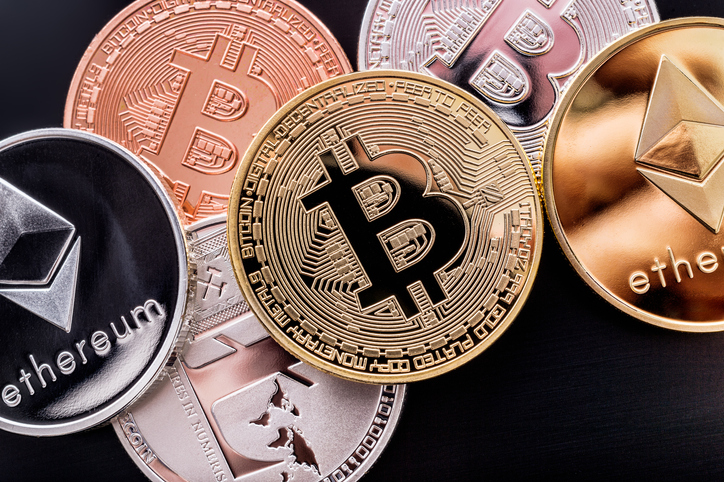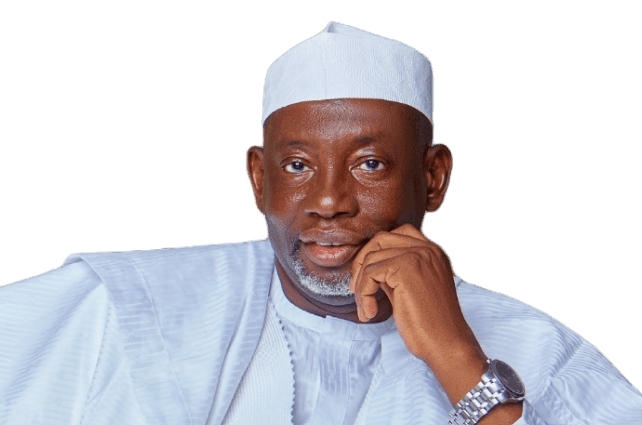News
#WeWantOurCryptoBack: Bitcoin Ban Undermines Digital Progress, Damages Public Trust

By Joel Popoola
As Nigeria’s latest anti-corruption chief, Abdulrasheed Bawa has his work cut out.
I mean, how are the people of Nigeria supposed to trust the ruling class when the man he succeeded as head of the Economic and Financial Crimes Commission has himself been accused of pocketing the agency’s funds?
But the Nigerian government’s decision to ban bitcoin this week is likely to make greater public trust in our political system even more elusive.
Last October, the National Information Technology Development Agency published its draft National Blockchain Adoption Strategy. The strategy made a strong case for greater national adoption of blockchain technology – think of it as a secure digital ledger of transactions, often using digital money known as cryptocurrency or bitcoin, stating that the technology has the: “Potential to become a transformative force in multiple aspects of government and private sector operations. Its potential has been recognized globally, with a variety of international organisations and technology companies highlighting the benefits of its application in reducing costs of operation and compliance, as well as in improving the efficiency and security of business processes”.
This is certainly a view shared by many Nigerians overseas, who are increasingly turning to bitcoin to send money home to their families safely and swiftly, while avoiding fees and foreign exchange costs, and by Nigerians at home who see it as a safer way to save than a Naira which has been devalued twice in the past twelve months.
On February 5 however, in another classically Nigerian example of joined-up government, the Central Bank announced a ban on the exchange of cryptocurrency by financial institutions and ordered banks to close accounts trading in it.
The government has repeatedly, and often successfully, committed Nigeria to the development of our digital economy, which will be critical in replacing oil with the talent and ingenuity of our young people as Nigeria’s most important natural resource.
At a stroke, this decision threatens to undermine so much of that progress.
How does this look to our emerging digital sector – made up of the hi-tech businesses the government expects to be at the forefront of our national economic development. Business leaders in this critical economic will now be questioning whether or not the government understands their companies and their needs.
But the decision will have even more of a negative impact on public trust – in particular the trust of those same young people.
CBN explained the decision by emphasizing the need to protect Nigerians from losing their savings and to prevent cryptocurrencies being used for criminal activities.
This is important – but many Nigerians will see the decision as yet more evidence of what they see as an elderly and out-of-touch elite attempting to stifle innovation and progress they have no interest in understanding and propping up a past which no longer works.
Others will be enraged at the government arbitrarily taking away the source of their livelihoods at a time when young Nigerians are already facing an unemployment rate over 30%
Others will perceive a link between the decision and the use cryptocurrencies by some of the #EndSARS protesters when the government froze their bank accounts.
As always, the evidence for these feelings is all too easy to find online, where the lack of public or even industry consultation led immediately to the #WeWantOurCryptoBack campaign. And online is where leaders need to engage the most if they want to tackle this problem.
There are plenty of understandable reasons for the spontaneous banning of bitcoin – but our leaders have made next to no effort to explain them.
And when so many Nigerians already have such little trust in their political leaders and institutions, it is little wonder that every action being taken is seen as being motivated by the very worst of intentions.
Better public and economic stakeholder consultation by government is critical for the government to build trust, and to drive forward the digital agenda.
At the digital democracy campaign I lead, we have developed a platform to enable this; a free mobile app called Rate Your Leader.
Rate Your Leader allows electors and elected to communicate person-to-person at the touch of a button.
Direct answers to direct questions are the best way to build relationships and trust – even if you don’t agree with a decision you will respect the position the person making it is in and appreciate their commitment to communicating that decision. There is nothing to lose to simply, transparently setting out a course of action you intend to take, and the reasons for it – and everything to gain, not least in the collaborative potential of involving others in that decision to ensure it is designed in the most effective way.
I cannot emphasise enough that 72 per cent of Nigerians believe the statement “most politicians are corrupt” describes our country well – and six-in-ten say it describes Nigeria “very well.”
Our nation cannot fulfil its vast potential until we address this, and digital technology gives us the means.
Which is why the government needs to embrace it – not ban it.
Joel Popoola is a Nigerian tech entrepreneur, digital democracy campaigner and is creator of the Rate Your Leader app. Follow Joel on Twitter @JOPopoola
News
Jigawa Gov Knocks Danjuma over Defend Yourself Advice

Jigawa State governor, Umar Namadi, has cautioned against calls for self-defence from mauruding bandits and killer herders, warning that such a move could plunge the country into anarchy.
Speaking on Channels Television’s Sunrise Daily on Monday, Governor Namadi responded to recent comments by retired General Theophilus Danjuma, who urged Nigerians to defend themselves against bandits and armed attackers, particularly in Benue and Plateau states.
General Danjuma, a former Minister of Defence, had argued that reliance on the government for protection was no longer tenable given the spate of violence and killings in the country.
“It is now very clear that the government alone cannot protect us. We must stand up and defend ourselves, our families, and our lands before these criminals overrun the entire country,” Danjuma said during a public event in Takum, Taraba State, on Saturday.
But Governor Namadi rejected that approach, describing it as a dangerous path.
“He (T.Y. Danjuma) is a very senior security person, and his words deserve respect and analysis,” Namadi said. “But I think if you say citizens should be allowed to defend themselves, you’re causing anarchy. I don’t think we’ve reached that level yet.”
He argued that rather than encourage armed self-defence, the government at all levels must continue to strengthen Nigeria’s security architecture.
“The government is doing its best in terms of security arrangements. If you allow the people to defend themselves, that means you are encouraging a crisis between farmers and herders,” the governor warned.
Namadi cited his administration’s approach to resolving the long-standing farmer-herder clashes in Jigawa State as a better alternative. According to him, when he assumed office, he prioritised non-violent conflict resolution strategies.
“When we came in, we decided to employ a lot of strategies and tactics, including dialogue,” he said. “We engaged traditional rulers, as well as representatives of both farmers and herders. We sat down, reached a consensus, and established standing committees to reconcile all parties.”
He added that these efforts helped halt a decades-long conflict:
“The people now understand that the 25 years spent fighting and killing each other were not worth it. Today, they are able to work, interact, and live together in peace.”
Governor Namadi further noted that Jigawa is currently not among the states facing severe threats such as insurgency or mass killings by bandits. Instead, the primary challenge had been farmer-herder clashes, which his administration has successfully curtailed.
“We thank God that Jigawa State is not affected by insurgency or insecurity for no. The major issue we are dealing with is the herders-farmers clash, and we are addressing it decisively,” he said.
Despite the worsening security in other parts of the country, Governor Namadi insisted that self-defence is not a viable solution and could deepen the crisis:
“So, I think the government is doing its best, both at the federal and state levels. The issue of asking people to defend themselves — I think we have not reached that level yet.
News
2027: North Will Take Stand in Next Six Months – Baba-Ahmed

Dr. Hakeem Baba-Ahmed, a former Special Adviser on Political Matters to President Bola Tinubu, has revealed that the North will, in the next six months, take a stand on who to support for the presidency in 2027.
He boasted that no politician can win the presidency in 2027 without the support of the region.
In a video interview he granted in Hausa language, Baba-Ahmed, who appeared alongside a former Executive Secretary of the National Health Insurance Scheme, Usman Yusuf, lamented the state of the nation and urged northerners to resist divisive and deceptive politicians ahead of the next general elections.
He said: “In the next six months, the North will decide where it stands. If the rest of the country wants to join us, fine. If not, we will go our own way. One thing is clear: nobody can become president of Nigeria without northern support.
“We want a government that understands our problems and can address them. After Buhari’s eight years, we became wiser. Now, we are in another government, and we are still crying. Is crying all we know how to do?” Baba-Ahmed asked.
According to the former presidential aide, the North has suffered greatly during the Boko Haram insurgency, which affected all groups, Muslims, Christians, Fulani, Baju, and others, highlighting the need for unity.
“Before Buhari became president, Boko Haram was bombing mosques, churches, Abuja, and Lagos. That was a time Northerners had to unite. Today, no politician can just show up and expect Northerners to fall in line. Who are you?” he questioned.
He therefore warned against further marginalization of the North, noting that continued disregard for the region would have consequences.
“If they plan to rig the election, they should be careful. It won’t be good for Nigeria. The North is watching, elders, masses, and interest groups will soon say “enough is enough ‘. The injustice and sidelining must stop.
Baba-Ahmed urged the northern region to look beyond identity politics, stressing that competence and integrity should guide voter decisions.
“We are tired of being deceived into voting based on religion or ethnicity. That era is over. We just want a right leader, we just want someone who will solve our problems,” he said.
News
Embrace Christ-like Virtues, Glo Urges Christians at Easter

Telecommunications giant, Globacom, has charged Christians to embrace the virtues that Christ preached as the 2025 Easter celebrations hold this weekend.
While congratulating Christians in Nigeria in a goodwill message released from its Lagos Head Office on Thursday, Globacom admonished them to imbibe the noble qualities of Jesus Christ.
According to Glo, “Peace, love and sacrifice are the central message of Easter. Christ offered himself in atonement for the sins of the world and he lived a life which made Him an eternal symbol of peace and goodwill for mankind”
Globacom charged all Nigerians to espouse the lessons of selflessness, a necessary ingredient in the growth and development of every society and called on all Nigerians to join hands to make Nigeria a better place for all.
The company praised their perseverance through the 40-day Lenten period which comes before Easter as it emphasized the ideals of selflessness, love and peace among all as a way of demonstrating the exemplary life of Jesus Christ.
Easter comes yearly at the end of the Lenten season of fasting and prayer considered as a ritual of purification for the Christian faithful. It also precedes the crucifixion of the Lord Jesus Christ on Good Friday and His eventual resurrection on Easter Sunday.
The company assured its customers of unhindered voice, data and Short Messaging Service (SMS) during and after the Easter celebrations, while urging them to avail themselves of the various data and voice offerings on the network.






